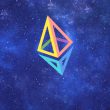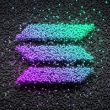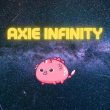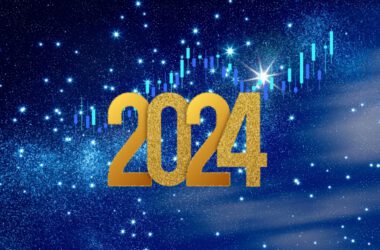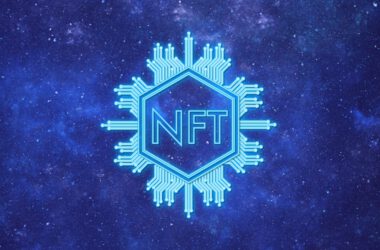Asset – the most general term for anything related to blockchain coins or tokens. There is no agreement on whether digital assets are securities, so always check coins or tokens for regional restrictions and exchange listings.
Auction – a price-setting event for NFTs. Some items sell on a so-called Dutch auction where the initial price starts at a certain level and drops until the first buyer is ready to pay.
Axie – a character in the Axie Infinity game. Axies come in classes with different strengths and weaknesses: Reptile, Plant, Dusk, Aquatic, Bird, Dawn, Beast, Bug, Mech.
Bitcoin – the first digital asset, used as a payment coin. BTC, as its trading ticker is widely used, is the most highly valued coin with the biggest market capitalization.
Bridge – a tool to move tokens between two different blockchains. On the user side, the bridge looks like a web app. Using a browser extension wallet or another wallet, the bridge stores coins on one side and issues coins that can be used in a different environment. Examples: Ethereum-Ronin bridge for Axie Infinity.
Burn – destroying coins by sending them to an inaccessible address. Burns of tokens create scarcity by diminishing the supply of tokens.
Cryptocurrency – another name for a digital asset. The debate continues whether any of the digital assets is a currency because most networks aim for zero inflation or even deflationary coins. BTC is usually referred to as cryptocurrency.
Dapp – short for Distributed App. Usually, any application that also communicates with a blockchain such as Ethereum. Dapps include games, exchanges and other tools that use or transfer tokens or cryptocurrencies. Not all dApps are fully decentralized, with most having tools to be controlled by either the team or a form of delegate council.
DEX -A decentralized exchange. Usually, exchanges are corporate entities that set up a trading platform with order books. A DEX uses automated trading built through smart contracts and is not run by any one entity. The list of DEX includes UniSwap, PancakeSwap, Pangolin, and other venues where tokens can find liquidity.
DeFi – Decentralized finance. The term designates any financial operation which is done through the blockchain. DeFi also refers to decentralized exchanges and locking in tokens for decentralized trading pairs. Read the longer guide on DeFi.
ERC – ERC stands for Ethereum Request for Comment, the way updates on the Ethereum network were initiated. ERC-20 is a standard code for fungible tokens or ones used for payment and simple transfers. ERC-271 is the name of non-fungible tokens, also known as NFT. An ERC-271 asset points to a unique image or other media or even physical property, hence non-fungible, or not replaceable for another token of the same type.
Ethereum – proof of work blockchain producing ETH tokens and carrying ERC-20 and ERC-271 assets. Ethereum is one of the biggest platforms for play to earn, NFT, DeFi and other startups.
Farming – the creation of passive income by locking in a pair of tokens on a DEX. Also known as liquidity mining or token farming. The locked tokens are then used to pay out trades to other DEX participants that do not want to hold the token. Farming is risky and may mean waiting out temporary losses. Usually, additional reward tokens are assigned for farming.
Gas – the fee paid to transact on some types of networks. Read a longer guide on Ethereum gas prices.
IDO – Initial Decentralized Offering. A type of token sale offered on launchpad platforms. A variation of Initial Coin Offering (ICO) or Initial Exchange Offering (IEO), the IDO is mostly unregulated and sometimes does not require verification or whitelisting.
KYC – know-your-customer, a regulation for entities working with financial products. Using tokens or cryptocurrency, especially when exchanging, may be accompanied by a screening process known as KYC.
Liquidity – the funds available in a token trading pair to achieve price discovery. A token’s liquidity depends on how much Ethereum (ETH) has been locked in the same trading pair. Liquidity is also a term in centralized trading, meaning the available funds to achieve trades without price slippage.
Minting – the creation of an NFT after paying network fees. Until a token is minted, the media related to the NFT will not have the same value. Minting events can become competitive, with bots having an advantage of fast fee payment.
NFT – non-fungible token. An asset that cannot be swapped for another of the same type. An NFT token designates a specific asset outside the blockchain – an URL for media, or even a physical object such as real estate. Selling the NFT in theory transfers property rights to that asset. NFT often refer to avatar-like images with varied features, but NFT can also assign assets within games, metaverse land plots or other digital goods.
OpenSea – one of the most widely known markets for NFT items. OpenSea also supplies data on NFT activity and price floors. OpenSea can list all types of NFT and usually vets the collections to avoid the listing of unoriginal tokens.
Price Floor – the lowest price of an NFT from a collection. A measure that depends on the supply and demand for a collection. A rising price floor is usually good news, while a rapidly dropping one means the NFT collection has lost value.
Private Key – the private key is cryptographic protection for a wallet. It should never be shared with any apps or persons, and only very cautiously used to renew wallets or unlock old wallets. The private key is used to derive a public key, which is visible on the blockchain and designates addresses to receive funds.
Proof of Stake – a method for block production which allows only persons holding a certain amount of coins and tokens to produce the next block.
Rug Pull – a type of scam where a startup team will disappear, while also selling all their tokens on the market and tanking their price. Personal due diligence is the best tool to avoid investing in projects with dubious chances of success.
Smart Contract – code that sets a predetermined series of blockchain operations. Automated transactions, token creation or burn, and other activities such as automated trading can be performed by a smart contract.
Token – a digital asset with a certain monetary value. Usually refers to fungible tokens. Tokens serve as a unit of value or as a currency within one blockchain ecosystem.
Wallet – special software that communicates with the blockchain and also protects the personal balance with a private key. Wallets include MetaMask, Binance Wallet, desktop wallets like Exodus or hardware tools like Trezor or Nano.
Whale – a big owner of cryptocurrency, or a big wallet that can significantly affect the market. The risk of a token may depend on the presence of “whales” owning large balances and able to sway the market.


